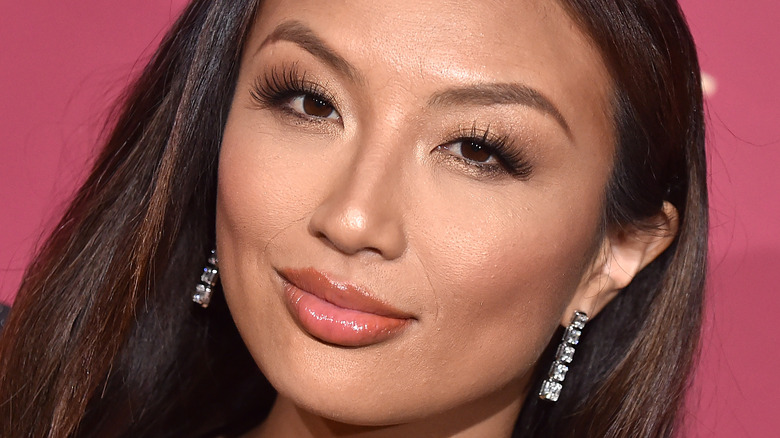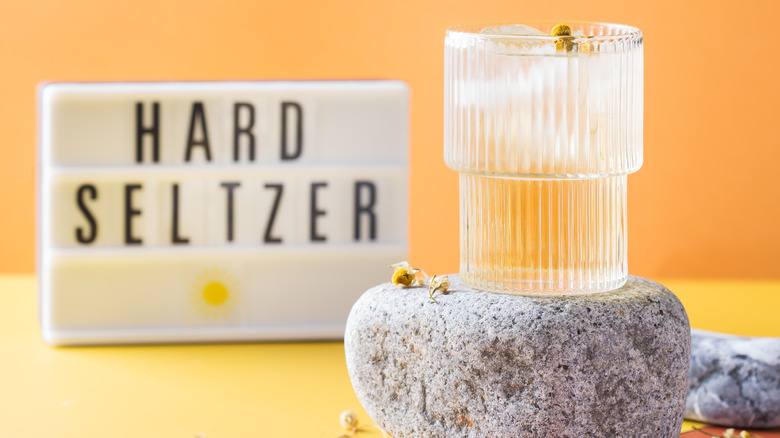Here's What Annoys Jeannie Mai About The Beverage Industry
You may know Jeannie Mai as a make-up artist and stylist or as a co-host on the syndicated talk show "The Real." Mai also had a stint on the reality competition show "Dancing with the Stars," though she had to leave early due to an unexpected illness that required surgery, according to People. As if her work commitments and being in the limelight were not enough, she recently became an ambassador for the tea brand Owl's Brew, which crafts tea-centered beverages or Hard Seltzer tea, as it's written on the can label. Mai was named the Chief Brand Officer, which allows her to focus on creation, innovation, and strategy, per People.
As a Vietnamese and Chinese American, Mai grew up drinking plenty of tea at home, the outlet noted, so it makes sense that she would represent a brand dedicated to the popular beverage. According to the Owl's Brew website, Mai explained, "I'm an avid tea drinker, but I had never experienced anything like Owl's Brew before. It's delicious — and doesn't taste artificial, unlike most canned adult drinks."
So how did this partnership come to be? Not only did Mai love how these tea-focused drinks tasted, but also, once she researched the brand, she knew she had to reach out because the founders were women, per Owl's Brew. Here's why that motivated Mai to join the team.
Men control the beverage industry
When we reach for our favorite drink, we are likely not questioning who makes or created the beverages we enjoy. But, unsurprisingly, men are at the helm of the beverage industry. Jeannie Mai finds it annoying that men have so much control over the industry and are usually the leaders of drink companies. After all, not only men drink alcohol, so we should be wondering and questioning why there are not more women in charge of drink companies or creating their own brands.
In fact, Mai told People, "Men are more primarily the founders and the CEOs and have more access in the beverage world." You would think there would be more equality and more women in the industry if women drink, too. However, Mai posited this rhetorical question: "Why do they [men] decide how much we drink, because women drink as much as men." She makes a good point. It's time to start questioning why men are making the majority of decisions when it comes to what's available on grocery store shelves when they are only part of the population who drinks.

